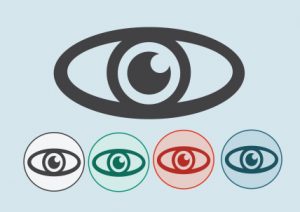By: Dominick L. Flarey, Ph.D, RN-BC, ANP-BC, CH-C
Certified Clinical Hypnotherapist by the American Board of Hypnotherapy
Executive Director, The American College of Hypnotherapy
Conversational hypnosis (1), also known as covert hypnosis, is a type of hypnosis that is often used by therapists, counselors, and coaches to help their clients achieve specific goals. This type of hypnosis is different from traditional hypnosis in that it does not require the use of formal trance induction techniques. Instead, conversational hypnosis relies on the use of conversation and rapport-building techniques to induce a state of relaxation and suggestibility in the client.

Conversational Hypnosis is a technique employed in order to get others to do as you direct them to, during everyday situations, without their knowledge of your influence. All forms of hypnosis, conversational or therapeutic, are based on very simple rules, steps that eventually lead a person into a state of hyper-suggestibility. According to John Kappas, founder of the Hypnosis Motivational Institute, 25% of the people you encounter during your lifetime will be naturally suggestible to you; the other 75% you will have to work on in order to exercise influence over their subconscious thoughts. Subconscious thoughts are those that exist below the level of conscious awareness. They are the product of the unconscious mind, which is constantly active, even when we are not aware of it. Subconscious thoughts (2) can influence our behavior, emotions, and decision-making, even though we are not aware of them. This is where knowing the basic rules and processes of hypnosis can come in handy, and give you the edge over the competition.
The Steps of Conversational Hypnosis
Step I
Step one is building rapport. Rapport is built on trust, and trust is based on the belief that whomever you are dealing with is just like you, or at least has your best interests in mind. In order to build rapport with someone you have never met, you must see yourself through their eyes, and experience a dialectical exchange from their point of view. Mimicking their posture, attitude, and affection can send strong cues to them that you are two of a kind. During this phase of the process, it is all about listening to what the other person is saying, and how they are saying it, then agreeing and affirming that what they believe is valid. Without rapport it will be impossible to exercise any type of influence.
Building rapport is important for several reasons. First, when we feel comfortable with someone, we are more likely to trust them and feel safe around them. This is important in both personal and professional relationships. Second, rapport helps us to feel more connected to others, which can improve communication and lead to better relationships. Finally, building rapport can help reduce stress and anxiety, and create a sense of well-being.

Step II
Step two is to create an overload in the conscious mind (confusion). Overloading the conscious mind (3) refers to a state where the level of information or stimuli in the environment exceeds the capacity of the individual’s working memory. In this state, the individual is unable to process all of the information and may experience feelings of confusion.
At this point the other person should feel comfortable with you. “Hey, this guy isn’t so bad; he understands where I’m coming from,” and of course, you do. Now, what is needed is a statement that while affirming what the subject believes to be correct, also seems to contradict that which has already been established as agreed upon. These statements should include words that appeal to the subject’s suggestibility type. Physical people respond to words that describe concrete ideas, while emotional subjects respond more readily to inferences and words that describe states of feeling. Crowding the subject and making physical contact, if they are physical, can also help create an overload in the conscious mind. This leads to the conscious mind’s desire for an outlet, an escape from the state of disequilibrium, which is exactly what will be provided in the next step.
Step III
Step three is where influence is exercised by giving the subject a suggestion that allows them to gain a state of homeostasis, and at the same time is beneficial to the cause. Giving the subject a weakly phrased statement they can agree with provides the subject’s conscious mind with the escape it needs, thereby allowing direct access to the unfiltered unconscious. The last statement is then followed immediately with a more strongly phrased suggestion that is in accordance with the directive. While in this state of hyper-suggestibility, the suggestion is implanted directly into the subconscious mind. It then becomes part of the subject’s belief system, without the subject’s conscious awareness. Hypersuggestibility is a state of heightened suggestibility in which individuals are more responsive to suggestions than usual. This can occur in both positive and negative contexts, with people being more likely to either accept or reject suggestions depending on the nature of the suggestion. Hypersuggestibility is often associated with altered states of consciousness, such as hypnosis or sleep, but it can also be induced by drugs, trauma, or other forms of psychological stress.
Conversational Hypnosis and Hypersuggestibility
The benefits of hypersuggestibility are numerous. For one, hypersuggestibility can help individuals overcome negative emotions and experiences. Additionally, hypersuggestibility can help people learn new information more quickly and easily. Finally, hypersuggestibility can also increase creativity and imagination.
Conversational Hypnosis Overview
That’s it. That is all there is to it: Creating rapport; overloading of the conscious mind leading to a state of disequilibrium, thereby triggering the conscious mind’s need to escape; providing a means of escape for the conscious mind, creating a direct route to the subconscious. The subconscious mind is the part of the mind that controls automatic processes and is not accessible to conscious awareness. It has been described as a hidden reservoir of knowledge and feelings that influence our conscious thoughts and behaviors. The subconscious mind is not a separate entity but is a part of the overall mind system. Franz Mesmer, the father of hypnotism, understood this from the very beginning. However, just knowing the techniques will not guarantee you success. As in the case of every good hypnotist, personality goes a long way and determines in large part how effective these techniques will be for you.

In Conclusion
In conclusion, conversational hypnosis can be a powerful tool to influence others. When used correctly, it can help you get what you want and achieve your goals. However, it is important to use it ethically and responsibly, as it can be easy to abuse. Conversational hypnosis must be used in ethical and legal ways. This means that the trained hypnotist should only use suggestion for good, and never to exploit or control someone. When used correctly, conversational hypnosis can be a powerful tool to help people make positive changes in their lives. It is often used in sales and marketing, but is also becoming increasingly popular in healthcare. There are many potential benefits to using conversational hypnosis in healthcare, such as helping patients to relax and feel more comfortable during procedures, increasing compliance with treatment plans, and reducing stress and anxiety levels. We see it being used in pre-op anesthesia to help patients relax prior to surgical procedures. It is also being used in dental practices to assist patients to relax and become more calm prior to dental procedures. There are a wide range of uses of this type of hypnotic technique that are being employed in health care practices today.
If you are a health care professional and are interested in expanding your practice in the area of Clinical Hypnotherapy, The American Institute of Health Care Professionals, Inc. (AIHCP) offers a full curriculum of continuing education courses with Board approvals, leading to Certification. Upon successful completion of the program, graduates receive Certification as a Certified Clinical Hypnotherapist in the American College of Hypnotherapy. The American College of Hypnotherapy is a subdivision of the AIHCP. You may preview our Clinical Hypnotherapy Certification program here: access information here.
References
1. Convert Hypnosis. Wikipedia. access here.
2. Subconscious Definition: The Hidden Power of Your Mind. Matt Coates. Mindvalley. November 27, 2018. access here.
3. The Role of the Conscious Mind. Kendra Cherry. Very Well Mind. September 1, 2022. access here.
4. Franz Mesmer. Wikipedia. access here.
Suggested Readings
1. Efficacy of Conversational Hypnosis and Propofol in Reducing Adverse Effects of Endoscopy. Azra Izanloo, et.al. Anesthesia Pain Medicine. October, 2015. access here.
2. Weaning and Extubation Assisted with Conversational Hypnosis: A Systematic Review. Johan Wormser, et.al. Research Square. July 6, 2021. access here.
3. Nurses’ perception of integrating an innovative clinical hypnosis–derived intervention into outpatient chemotherapy treatments. Danny Hjeij, et.al Canadian Oncology Nursing Journal. Vol. 32; # 3:2022. access here.
4. Hypnosis for pain and anxiety management in cognitively impaired older adults undergoing scheduled lumbar punctures: a randomized controlled pilot study. Pauline Courtois-Amiot, et.al. Alzheimer’s Research & Therapy. 1: September, 2022. access here.





